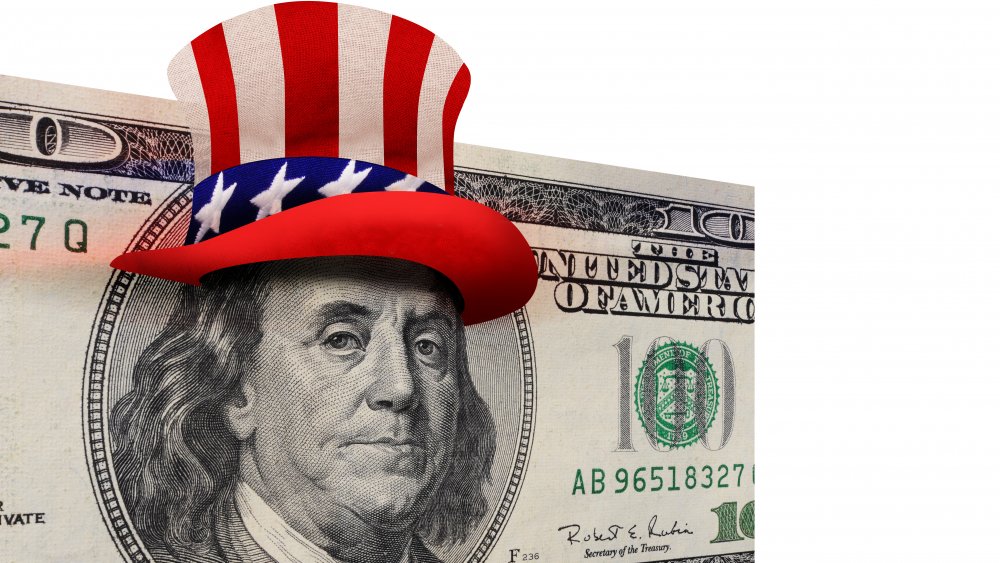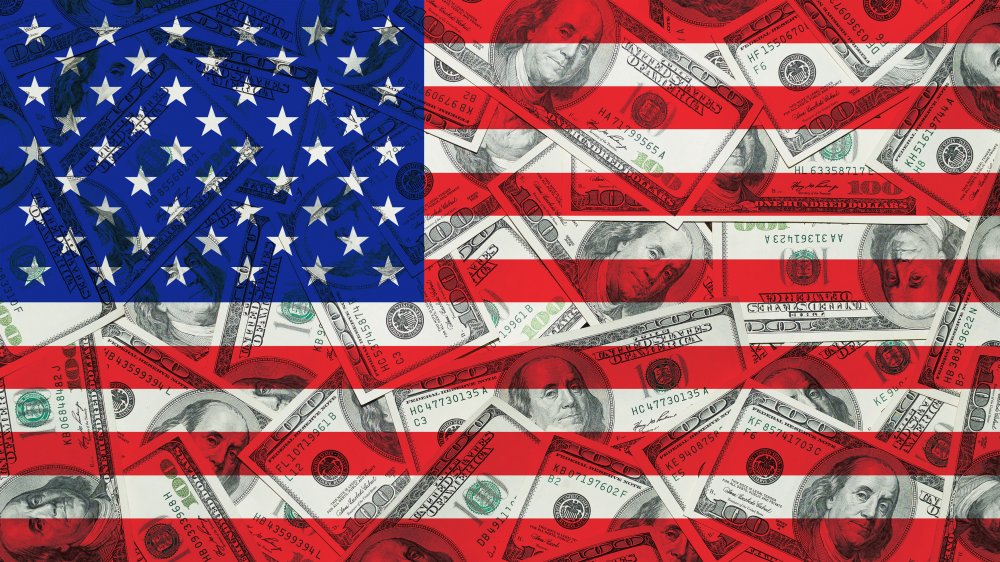How Much Money Is In The US?
The US already has a national anthem, but its de facto theme music might just be the O'Jays' "For the Love of Money," a song whose intro consists of the word 'money' sung over and over. It captures the ravenous passion for cash that shapes America's character. As the O'Jays succinctly put it, "For a small piece of paper it carries a lot of weight." According to Market Watch, a 2019 study conducted by researchers at the University of Virginia and Stanford University looked at a total of 152,661 individuals, and their results pointed to the overall conclusion that in America "incompetent, rich people are more likely to get ahead than smart people with no money."
The US has the largest economy on Earth by a country mile, boasting a GDP of roughly $20.4 trillion, per the World Atlas. In second place is China with a GDP of $14 trillion. Of course, as Investopedia points out, the Gross Domestic Product only tells you how much money a country's goods and services are worth in a particular time frame. That doesn't really answer the questions of how much money a nation has or who in that nation actually has it. But as you may have already guessed, for the US, the answers to those questions are really gross.
For the love of money
Just to make sure everyone's on the same page, let's preface this discussion with an important distinction. People often conflate money with wealth, though the two concepts differ in significant ways. Investopedia explains that wealth is the "value of all the assets of worth owned by a person, community, company, or country." While that value is typically conveyed in monetary terms, you could actually use non-monetary units to measure wealth, like quantities of wheat or cattle. Sarah Stanley Fallaw, the director of research for the Affluent Market Institute, told Business Insider that "only 8.2 percent" of a millionaire's wealth comes from their income. So tallying the amount of money in America isn't the same as calculating its wealth.
Business Insider writes that as of 2018, the U.S. had about $1.5 trillion of physical currency in circulation, approximately 80 percent of which was accounted for by $100 bills. If you move beyond tangible money, the U.S. had approximately $14 trillion. Much of that money is concentrated in the hands of a wealthy few because, as NPR reports, in 2018, income inequality reached a 50-year high despite "more than 10 years of consecutive GDP growth." That same year CEO compensation rose to 361 times the average worker's salary. If you looked at wealth, it would be even worse, as just 10 percent of U.S. households held 70 percent of the nation's wealth.

